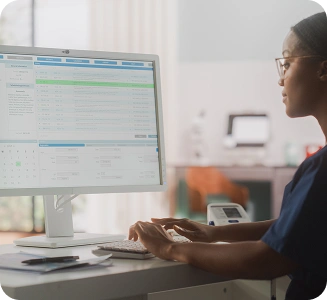How Equality Health applies actuarial science to drive winning solutions.
Have you ever checked your lottery numbers and had a nervous feeling like you might actually win? Listening to Todd Galloway may have you thinking otherwise. Whether it’s gambling in Vegas or determining the likelihood of your next business initiative succeeding, Galloway can give insightful guidance because he’s an actuary.
Galloway helped General Atlantic (GA) conduct diligence on scaling Equality Health’s tech-enabled, whole-person care model to a nationwide solution. Towards the end of diligence, GA asked him to consider folding his actuarial consulting company, Daraja Enterprises, into the broader transaction. Galloway accepted and then became Equality Health’s Chief Actuarial Officer. He described this scenario as “serendipitous” since Equality Health not only had so much winning potential, but it was located right in his home town of Phoenix, Arizona.
The Art of the Backstory
“An actuary’s job is to evaluate and quantify risk,” Galloway explained. “Every company faces a range of risks. That’s why there are different types of actuaries in different fields. In the healthcare space they evaluate contract risk, member risk, provider risk and employee performance risk. We try to identify and quantify each risk so we can develop strategies to mitigate them.
“Actuarial science,” Galloway added, “is not just science. It’s a blend of art and science. The known numbers are the science, but the unknown assumptions are where you need to paint the rest of the picture with art.” He learned this at an early age while working at a horse track selling racing forms before entering college.
“When working at the track,” Galloway recalled, “I loved all of the data I could get. I was pretty good at using that data to handicap the races. But then I learned there’s a lot of information that is not in the racing form. As I got to know and understand the trainers and jockeys, I realized there’s an additional narrative around every horse in every race. The more information you gather, the more you know about who the winners and losers are going to be. The same is true in business.”
This “getting to know the undocumented narrative” phase plays an important role in Galloway’s thought process. He has used it in his career to look beyond the numbers and understand hidden risks and opportunities.
“I took a step back and thought about all the opportunities at Equality Health and the things they were doing,” Galloway said. “I saw there was a tremendous winning opportunity moving forward. Daraja seemed to be the last couple of missing puzzle pieces.”
What Galloway learned during the diligence process was how Equality Health was in a unique position to transform value-based care by using their integrated, wholistic and tech-enabled solutions to improve the care delivery system.
“One thing I found to be really difficult in my career,” Galloway said, “is to get important clinical information in front of providers at the time they need it. I think Equality Health is in a really unique position to help providers with that.”
Equality Health exists to improve and supplement providers’ practices, which creates value in the form of lowering claim costs, increasing quality and improving members’ health. Equality Health accomplishes this by educating and sharing the “backstory” for the vastly diverse populations their network of providers serves. Providers typically only know the data related to the services or medications prescribed by their practices. Equality Health supplements and shares information related to all of the members’ medical care along with other subjective-type information, such as their social determinants of health.
“Understanding some of the cultural, social and psychological issues members face at home, at school or in their environment is really important information,” Galloway explained. “Information that maybe their provider won’t ever know but if they did know, would better their care. And it also helps us understand who needs us the most.
“Our technology provides insights into a member’s health as well as behavior, which are available to their doctor in real time,” Galloway continued. “This allows our network of providers to offer the right care to the right patient at the right time.”
Predictive Modeling — A Win-Win-Win Solution
Another benefit that Equality Health brings to the table is predictive modeling — something savvy gamblers may utilize in some manner. Synthesizing all the available data and backstory is essential to “picking the winning horse.”
Predictive modeling can deduce who, among Equality Health’s 300,000-plus members, will be high cost, who will require the most assistance in the next year and what their probability of hospitalization, rising risk or an emergency room visit will be. This is important because 5% of any group in healthcare accounts for more than half of a group’s costs, 10% for two-thirds and 20% for 80% of the costs.
Galloway and his former firm, Daraja, bring their informatics platforms that include proprietary predictive modeling algorithms to Equality Health as the missing puzzle pieces. This will help Equality Health identify and manage the highest risk members to keep them healthy and avoid costly hospitalizations.
“From a macro perspective,” Galloway said, “we’re really about helping providers help the members, which helps the entire healthcare delivery system. Those are all good things because our solutions are designed to be a win-win-win.”




